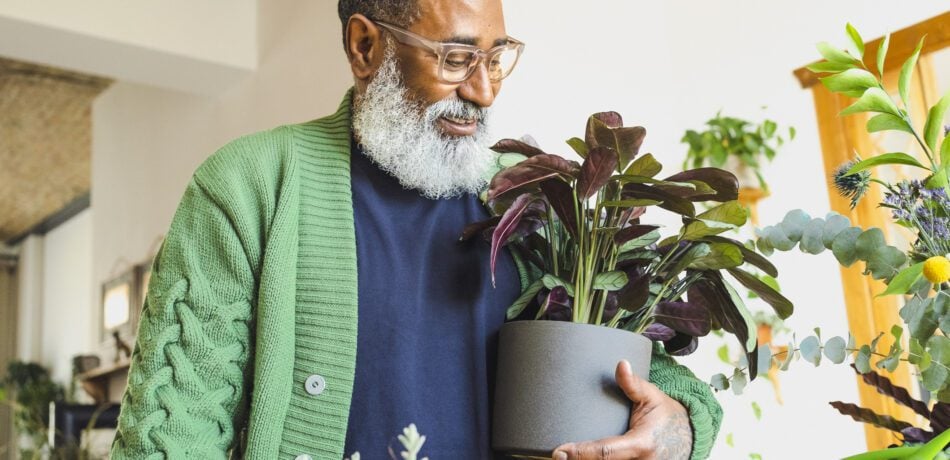For senior adults, the winter months can pose a unique set of challenges. The cold weather brings health risks including an increased risk of falling; feelings of depression or isolation; and susceptibility to contagious illnesses. And with nasty weather driving everyone inside, your level of physical activity is likely to decrease, making you even more vulnerable to health risks that could have major consequences.
It’s never too early to start preparing in advance for these winter months. In this article, we share a few smart ways to protect your health by staying physically active and maintaining social connections to boost your overall well being throughout the upcoming cold-weather season — no outdoor activities required.
Wintertime risks for senior adults
Why can winter be so dangerous for older adults? If your physical and mental health start to slip during this time of year, you’ll likely be more vulnerable to issues such as:
- Increased susceptibility to cold and illness. Older adults have a harder time maintaining body temperature, making it more difficult to stay warm both indoors and outdoors. Hypothermia can be a very real problem. So can colds, flu, or viruses like COVID-19. There’s also the simple issue that cold weather often discourages outdoor exercise, making your body grow weaker. (Pro tip: Exercise strengthens your immune system, helping you fight off the yucky contagious viruses that are often circulating at this time of year.)
- Depression and poor mental health. Seasonal affective disorder (SAD) is a condition that causes significant changes in mood and behavior when the seasons change. Symptoms last 4-5 months of the year (often occurring during the winter). This condition occurs largely because of the shorter days and reduced sunlight, making it difficult to get outdoors to soak up enough Vitamin D and spend time with other people. Outside of SAD, statistics from the CDC indicate that around 4% of adults age 70+ have depression. Learn how to tell if the older adult in your life is depressed.
- Increased risk of falling or injury. Patches of ice or other slippery surfaces during the winter can be landmines if you aren’t in good shape. Reduced muscle mass, poor balance, vision problems, and a lack of Vitamin D are all markers for an increased risk of falls. And these falls can be serious: Each year, there are approximately three million ER visits and one million hospitalizations due to falls among older adults. This is why it’s so important to do what you can to continue staying active throughout the winter.
Guaranteed Acceptance Life Insurance
Coverage options starting at $9.95 a month!
Guaranteed acceptance life insurance without medical exams, health questions, or rate increases.
5 tips to stay healthy indoors all winter long
Here are a few ideas to help you maintain both physical and emotional wellbeing in the winter months, without needing to brave the cold weather.
1. Find free home workouts on YouTube
Do you feel out of your depth trying to come up with effective workouts that you can do on your own at home? YouTube is a great resource to find all kinds of workouts that are specifically tailored for senior adults. In the free videos, a personal trainer will lead you through each workout step-by-step to ensure you’re performing each movement correctly. For example, start with one of these videos:
- 15-Minute Workout for Older Adults (National Institute on Aging)
- Seated Exercises for Older Adults (Dartmouth Health)
- Standing Exercises for Older Adults (Dartmouth Health)
You can also use printouts as a guide to easy at-home exercise. The CDC recommends this Chair Rise Exercise to strengthen the muscles in your thighs and buttocks to help prevent falls.
Active time can be social time. Invite friends or family over to work out with you. Just remember to always check with your doctor or health care provider before beginning any new workout regimen. And even after they’ve cleared you, start slowly and listen to your body.
2. Connect with people
Even if you’d rather just cozy up and stay home, make a point to continue socializing with others during the winter months. Regular social interaction boosts our mood and reduces isolation. Invite family, friends, or neighbors into your home for a cup of tea or coffee to chat about your hobbies or what’s going on in your lives.
Do you like to read? Check to see if your local library has a book club you could join. Or consider joining an online class — like these live classes on finance, wellness, fitness, computers, and technology offered by Senior Planet from AARP.
3. Cultivate an indoor garden
Gardening has a positive effect on mental and emotional health. It can reduce your heart rate and soothe your mind. And you don’t have to dig up your yard (or even have a yard at all) to reap these benefits: Indoor plants can brighten up your home and reduce stress.
For an easy starter, consider low maintenance plants like a jade plant, pothos, or spider plant. You could also grow herbs to add to your dinner (bonus points if you invite a neighbor to dine together).
4. Stay flexible with yoga
Yoga and stretching can improve flexibility, strength, and balance. It’s also very easy to do indoors. Some benefits of yoga include:
- Increased mobility
- Reduced risk for slipping and falling
- Protection against cognitive decline
- Increased flexibility, strength, and balance
- Improved sleep and mental wellbeing
Gentle yoga is a low-intensity activity with a low risk of injury. It promotes meditation and relaxation. If your priority is building muscle, you can look for a more strenuous program that aims to improve physical strength. Try one of these videos to begin:
- Gentle Chair Yoga for Beginners and Seniors (Yoga With Kassandra)
- Yoga For Seniors | Slow And Gentle Yoga (Yoga With Adrienne)
- 10-Minute Yoga for Beginners (Yoga With Adrienne)
5. Use your local senior center
Your local senior center, gym, or other community resource likely has a wide variety of activities or classes that you could attend. Don’t be afraid to take advantage of these opportunities. After all, that’s what they are there for!
These centers often have exercise classes tailored to senior adults such as chair yoga, strength training, or tai chi. You might also find indoor classes on topics like painting, crafting, cooking, or technology to keep seniors socially engaged and mentally active.
If you’re worried about the cost, these classes are often low-cost or even free. If they are not, consider approaching the director and asking if you could volunteer your time in exchange for taking a class you’re interested in.
Finally, if you are unable to drive, many counties offer Dial-A-Ride programs that transport older adults at little to no cost.
Stay active all winter long
These ideas are a great starting point for winter wellness. Get creative and see what else you can come up with! Stay as busy and active as you can, and before you know it, springtime will roll around again.
Colonial Penn is here for you!
Colonial Penn has specialized in making life insurance simple and accessible by offering it directly to consumers since 1957. Click here to learn more.





